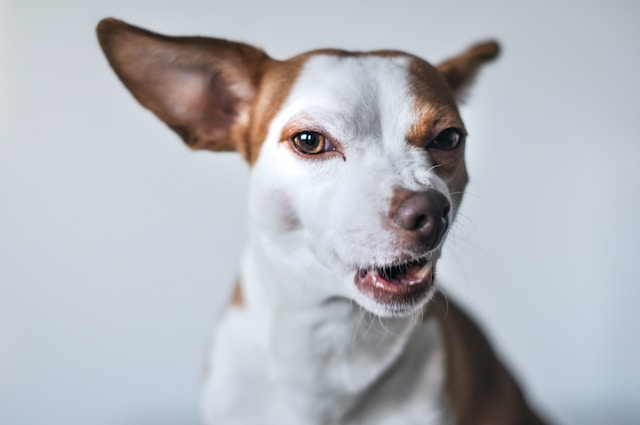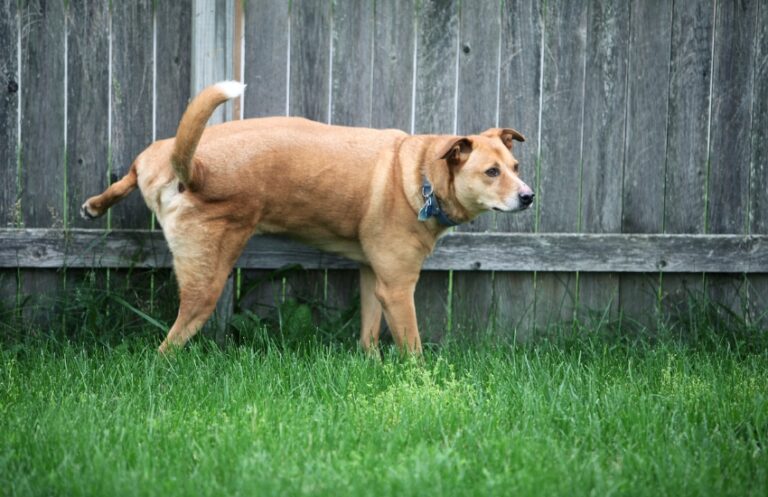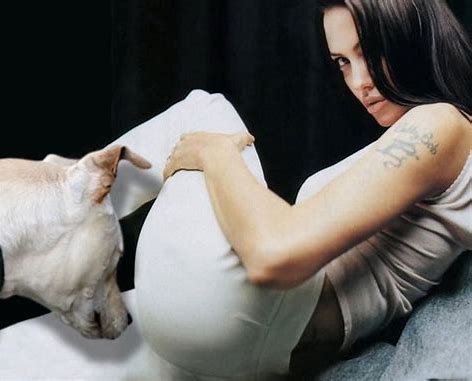Why Do Dogs Sneeze When They Play? The Surprising Answer Revealed

Why do dogs sneeze when they play? It’s a question that many dog owners have wondered about. Well, the answer is actually quite simple. When dogs play, they often get excited and engage in rough and rowdy behavior. One of the ways they communicate this excitement is through sneezing.
When dogs play, they use their nose and mouth a lot. This can cause them to inhale dust, dirt, or other particles that may irritate their nasal passages. Sneezing is their body’s way of trying to expel these irritants and clear their airways. So, the sneezing you hear when your dog is playing is just their way of saying, “I’m having fun!”
But, it’s important to note that not all sneezing during play is harmless. Sometimes, dogs may sneeze excessively or exhibit other signs of discomfort, such as nasal discharge or difficulty breathing. If you notice these symptoms, it’s best to consult with your veterinarian, as they could indicate an underlying health issue.
Why Do Dogs Sneeze When They Play?
Have you ever noticed your dog sneezing while they’re playing? It’s actually quite common and can be attributed to a variety of reasons. Sneezing during play in dogs can indicate excitement and is often a normal behavior. However, there are also certain factors that can cause dogs to sneeze while they play. Let’s explore some of the common causes and possible allergens that may trigger sneezing in dogs during play.
Can Sneezing During Play in Dogs Indicate Excitement?
When dogs play, it is not uncommon for them to sneeze. However, many dog owners wonder if this sneezing is a sign of excitement or if it indicates something else. The surprising answer is that sneezing during play in dogs can indeed be an expression of excitement and joy.
Just like humans may laugh, scream, or make other vocalizations when they are happy, dogs may sneeze as a way to show their excitement. Sneezing during play is a common behavior observed in dogs, and it is often accompanied by a wagging tail, playful barks, and energetic movements. It is their way of expressing their joy and enthusiasm during interaction and playtime with their human companions or other dogs.
It is important to note that not all sneezing in dogs during play is related to excitement. Sneezing can have various causes, including health issues or allergies. If your dog only sneezes occasionally during play and otherwise appears healthy and happy, it is usually nothing to be concerned about. However, if your dog sneezes excessively, excessively rubs or scratches its face, has nasal discharge, or displays other signs of discomfort, it is recommended to consult a veterinarian to rule out any underlying health conditions.
Common Causes of Sneezing in Dogs While Playing
- Play Sneezing: Sneezing during play can be a normal behavior in dogs and is often a result of excitement.
- Overly Dry Air: Dry air can cause irritation to a dog’s nasal passages, leading to sneezing during play.
- Dust or Allergens: Dogs with allergies may sneeze during play if they are exposed to dust, pollen, or other allergens in the environment.
- Nasal Irritation: Objects, such as grass or dirt, can get lodged in a dog’s nose while playing, causing sneezing.
- Foreign Bodies: Dogs may sneeze during play if they accidentally inhale small objects, such as grass seeds or plant material.
- Excitement and Exertion: Some dogs may sneeze during play when they are exerting themselves or become overly excited.
While sneezing during play is often harmless, it is important to observe your dog for any signs of excessive sneezing or other respiratory issues.
Is Sneezing During Play a Normal Behavior for Dogs?
Sneezing during play is a common behavior observed in many dogs and is generally considered normal. It’s important to understand that sneezing in dogs during play can serve different purposes and may not always indicate a problem. In most cases, it is a way for dogs to communicate and express their excitement or playfulness.
Possible Allergens Causing Dogs to Sneeze During Play
- Pollen: Dogs, like humans, can be allergic to pollen from various plants and trees.
- Dust mites: These microscopic organisms can trigger allergic reactions in dogs.
- Mold: Dogs may be sensitive to mold spores, especially in damp environments.
- Grass: Some dogs may have grass allergies, leading to sneezing during playtime outdoors.
- Perfumes or fragrances: Strong scents can irritate a dog’s nasal passages and cause them to sneeze.
- Cleaning products: Harsh chemicals and cleaning sprays can trigger sneezing in dogs.
- Cigarette smoke: Secondhand smoke can irritate a dog’s respiratory system and lead to sneezing.
These allergens can vary in severity and may affect each dog differently. It is important to observe your dog’s sneezing patterns and consult with a veterinarian if the sneezing becomes excessive or is accompanied by other concerning symptoms.
What Can You Do to Minimize Sneezing in Dogs During Play?
If your dog tends to sneeze frequently during play, there are a few things you can do to help minimize this behavior. While sneezing during play is typically harmless, reducing any potential irritants or triggers can create a more enjoyable playtime experience for both you and your furry friend. Here are some steps you can take:
Signs to Look for If Sneezing During Play Becomes Excessive
- Difficulty breathing: If your dog is having trouble breathing or is wheezing, it could indicate a more serious underlying issue.
- Excessive nasal discharge: If your dog’s sneezing is accompanied by a large amount of nasal discharge, especially if it is discolored or foul-smelling, it may be a sign of infection or allergies.
- Coughing: Persistent coughing along with sneezing during play could be a sign of respiratory problems or infections.
- Red or inflamed eyes: If your dog’s eyes appear red, swollen, or irritated, it may indicate an allergic reaction or infection.
- Lethargy or decreased appetite: If your dog seems unusually tired or has a reduced interest in food, it could be a sign that something more serious is going on.
If you notice any of these signs or if your dog’s sneezing during play becomes more frequent or severe, it is important to consult with a veterinarian. They can evaluate your dog’s symptoms, rule out any underlying health issues, and provide appropriate treatment or management options.
When Should You Consult a Veterinarian About Sneezing During Play?
While sneezing during play can be a normal behavior for dogs, there are some instances when it is advisable to consult a veterinarian. Here are some situations to look out for:
- Excessive Sneezing: If your dog is sneezing excessively during play and it is a frequent occurrence, it may indicate an underlying health issue that needs to be addressed.
- Other Symptoms: If your dog is exhibiting other symptoms along with sneezing, such as coughing, nasal discharge, or difficulty breathing, it could be a sign of an infection, allergies, or respiratory problem.
- Change in Behavior: If your dog’s behavior has changed recently, such as loss of appetite, lethargy, or decreased energy levels, accompanied by sneezing during play, it may indicate an underlying health issue.
- Persistent or Worsening Symptoms: If your dog’s sneezing during play persists or worsens over time, despite attempts to minimize triggers or environmental changes, it is advisable to seek veterinary advice.
Remember, every dog is unique, and it is always better to err on the side of caution when it comes to the health and well-being of your furry friend. A veterinarian can evaluate the situation, perform necessary tests, and provide appropriate treatment or guidance if needed.
Conclusion
While sneezing during play is a common behavior observed in dogs and is often a result of excitement, it can also be caused by other factors such as dry air, allergens, nasal irritation, foreign bodies, and exertion. In most cases, sneezing during play is harmless and a way for dogs to express their joy and enthusiasm. However, if your dog experiences excessive sneezing or displays other signs of discomfort, it is recommended to consult a veterinarian to rule out any underlying health conditions or allergies.
By understanding the common causes of sneezing in dogs during play and taking steps to minimize potential irritants or triggers, you can create a more enjoyable playtime experience for both you and your furry friend. Remember to observe your dog for any signs of excessive sneezing or other respiratory issues, and consult with a veterinarian if necessary. With proper care and attention, you can ensure that your dog stays happy and healthy during playtime.






